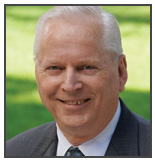Pentecostal/Charismatic Churches and Ecumenism: An Interview with Mel Robeck
A conversation with Professor and Pentecostal Statesman Cecil M. Robeck, Jr.
PneumaReview.com: As a Pentecostal, how do you define ecumenism?
 Mel Robeck: The term “ecumenism” is derived from the Greek word oikoumene, which comes from the noun, oikos. The basic meaning of oikos is “house,” and by extension, oikoumene refers to those things, which have to do with the household. I understand the ecumenical household to be the “Household of God,” the Church, the whole “People of God,” the Christian community. From my perspective, then, ecumenism is a term reserved primarily for the issues of relationship that exist between Christians. My understanding of what constitutes a Christian is fairly simple. A Christian is one who confesses that Jesus Christ is his or her Lord and Savior.
Mel Robeck: The term “ecumenism” is derived from the Greek word oikoumene, which comes from the noun, oikos. The basic meaning of oikos is “house,” and by extension, oikoumene refers to those things, which have to do with the household. I understand the ecumenical household to be the “Household of God,” the Church, the whole “People of God,” the Christian community. From my perspective, then, ecumenism is a term reserved primarily for the issues of relationship that exist between Christians. My understanding of what constitutes a Christian is fairly simple. A Christian is one who confesses that Jesus Christ is his or her Lord and Savior.
In my ecumenical work, I begin with the biblical premise that there is only one Church and that all who confess Jesus Christ are part of that Church, regardless of their denominational label. But if we drive down the street in any of our cities, we can see that there is something wrong. How is it that we have so many denominations—over 30,000 around the world today—while there is only one Church? Why is it that many of these denominations have nothing to do with one another, yet there is only one Church? Why do we speak against one another, and yet we say that we belong to the same Church?
Many people who are not Christians ask these same questions. Unfortunately, these questions compromise the message of reconciliation that we preach, the message that God has offered through Jesus Christ, a means of breaking down all barriers between God and humankind, and between all individuals. The result is that those outside the Church are either confused about the effectiveness of the Gospel, or they are completely scandalized by what they view as our “hypocritical” claims.
The so-called “Ecumenical Movement” first came into being as a direct result of these evangelistic and missionary concerns. The World Council of Churches, which was founded, in part, as a result of these concerns, seeks to overcome the historic divisions between its member denominations. Along the way, it has also addressed other human, inter-religious, and environmental issues that represent the concerns of the churches that are members of the Council. The World Council of Churches has invited all Churches who can confess that “Jesus Christ is both God and Savior according to the Scriptures” to join together in a common quest for visible Christian unity. Very few Pentecostals have taken them up on their offer.
We have been made one by the Holy Spirit, but our inability to live and work together with other Christians with whom we may at times have deep differences, is clearly confusing to the world.
Category: Ministry, Winter 2003


